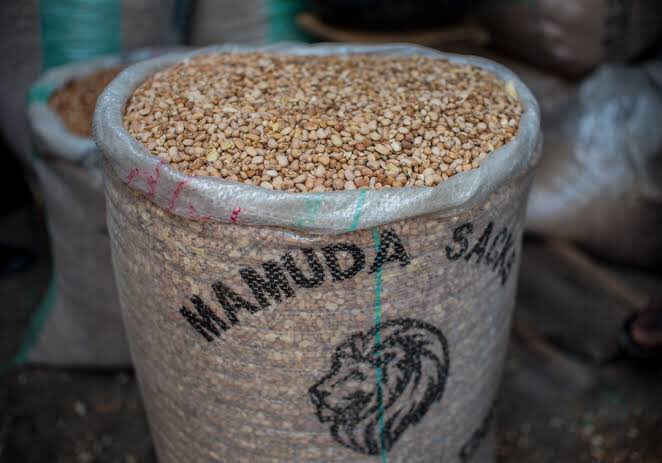Prices of Essential Food Items Surge by Over 250% in One Year – NBS Report Reveals
Nigeria is grappling with an unprecedented rise in food prices, as the National Bureau of Statistics (NBS) reports staggering increases in the cost of basic food items.
In October 2024, the average price of 1kg of brown beans saw a jaw-dropping increase of 254.23% compared to the same period last year, soaring from N790.01 in October 2023 to N2,798.50.
This dramatic rise is just one example of the inflationary trend affecting Nigerians across the country.
The NBS, in its Selected Food Prices Watch Report, revealed that other staple items such as eggs, bread, and rice also recorded sharp price hikes.
For instance, the price of a dozen medium-sized eggs shot up by 140.21%, rising from N1,112.22 to N2,671.60 year-on-year.
Bread prices also saw a notable increase, with the cost of sliced bread rising by 103.76%, from N760.82 in October 2023 to N1,550.24 in October 2024.
The cost of local rice, one of Nigeria’s most consumed food items, jumped by 137.32%, from N819.42 to N1,944.64.
These increases come at a time when millions of Nigerians are already struggling with the rising cost of living, making everyday essentials harder to afford for many households.
Beans, Eggs, and Rice: The Price Explosion
The price hikes are not just limited to beans and eggs. Meat, bread, and rice are all part of a wider trend of escalating food prices.
The price of 1kg of boneless beef rose by 98.73%, from N2,948.03 to N5,858.58 year-on-year.
On a month-to-month basis, the price of beans alone jumped by 2.19% from September to October 2024.
Bread, which is a common breakfast item for many Nigerians, became significantly more expensive, rising by 1.44% from N1,528.19 in September 2024.
Experts are now warning that these price surges could have a long-term impact on food security in Nigeria.
Regional Price Differences Highlighted
The NBS report also shed light on the varying food prices across Nigeria’s states and zones.
In October 2024, the highest average price for 1kg of brown beans was recorded in Bauchi, where it cost N3,750. Meanwhile, Yobe had the lowest price at N1,749.52.
The highest price for a dozen eggs was seen in Niger State at N3,450, while Adamawa had the lowest at N2,050.
As for bread, Rivers State recorded the highest price at N1,867.14, while Yobe had the cheapest at N960.07.
Rice prices followed a similar trend, with Kogi State recording the highest price for 1kg of local rice at N2,693.41, while Benue offered the lowest at N1,267.25.
These differences in food prices across regions indicate significant disparities in the cost of living throughout the country, with some areas experiencing much higher costs than others.
Inflation’s Impact on Nigerians
As food prices continue to soar, many Nigerians are feeling the pinch, especially in rural and low-income urban areas.
The rising cost of basic food items is creating economic pressure on families already facing high transportation and energy costs.
“The cost of beans, eggs, and rice has become unbearable for many of us,” said Chika Okafor, a Lagos-based trader. “How can we survive when things are this expensive?”
The NBS report highlights how these price hikes are putting a strain on Nigeria’s economy, especially with the government’s efforts to curb inflation and boost food security.
Earlier this year, the Nigerian government introduced a 150-day duty-free import window for certain food commodities, such as maize, wheat, and brown rice, to alleviate the food price burden.
However, experts argue that the government needs to address the root causes of the food price crisis, such as insecurity, foreign exchange challenges, and transportation bottlenecks.
Experts Suggest Long-Term Solutions
While the duty-free import window was a step toward tackling food shortages, experts argue that more sustainable solutions are needed to bring prices under control.
“The problem goes beyond imports; it’s about addressing the systemic issues that cause food prices to rise in the first place,” said economist Dr. Chinonso Adebayo. “We need to focus on the security situation, transportation infrastructure, and creating a favorable environment for agriculture to thrive.”
Dr. Adebayo further emphasized the importance of improving local agricultural production to reduce reliance on imported food items, which are often subject to global price fluctuations.
As the government works to improve food security, Nigerians will be watching closely to see if the proposed measures can make a meaningful difference.

